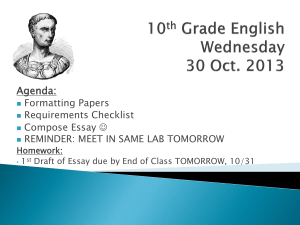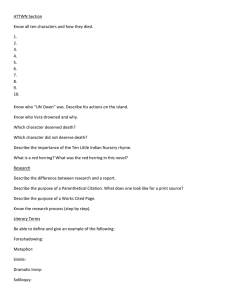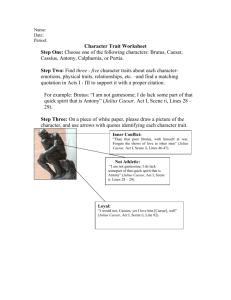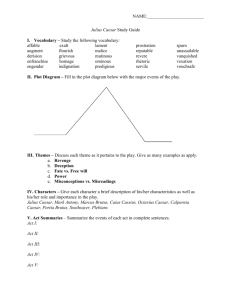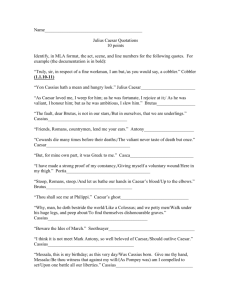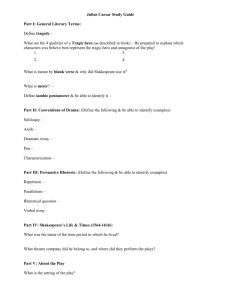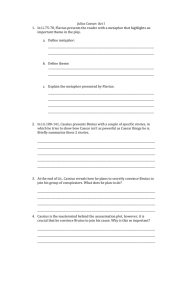Julius Caesar Test Review: Characters, Quotes, and More
advertisement
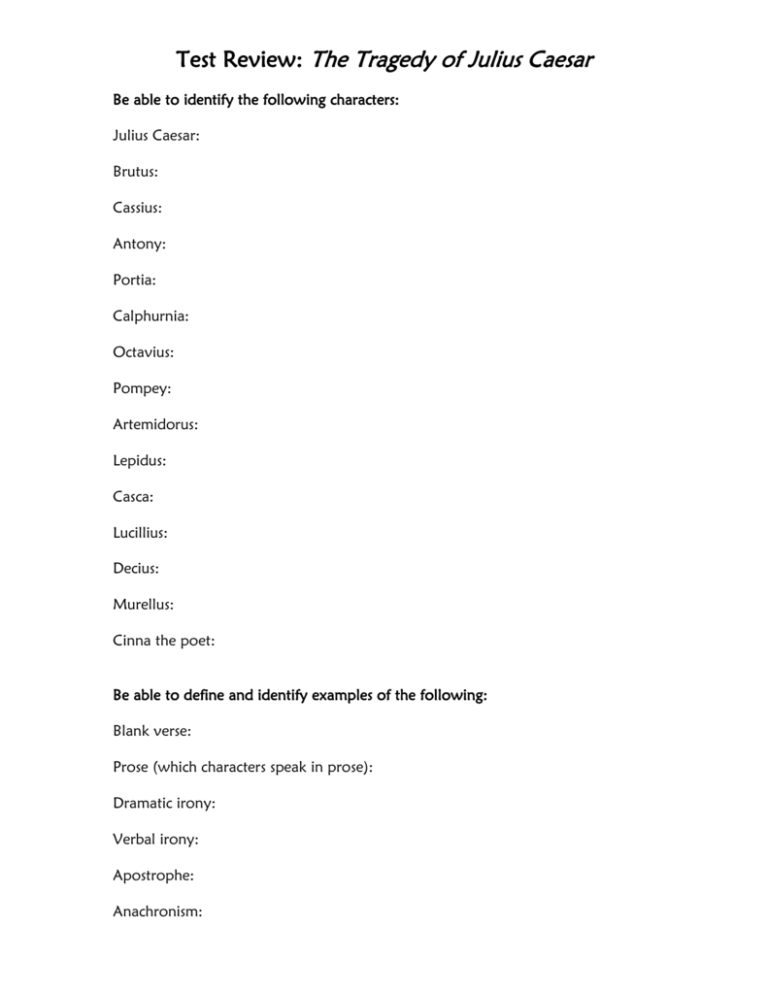
Test Review: The Tragedy of Julius Caesar Be able to identify the following characters: Julius Caesar: Brutus: Cassius: Antony: Portia: Calphurnia: Octavius: Pompey: Artemidorus: Lepidus: Casca: Lucillius: Decius: Murellus: Cinna the poet: Be able to define and identify examples of the following: Blank verse: Prose (which characters speak in prose): Dramatic irony: Verbal irony: Apostrophe: Anachronism: Be familiar with which Acts each of the major events listed below occur: Caesar returns to Rome after defeating Pompey. The soothsayer says, “Beware the Ides of March.” Calphurnia dreams Caesar is murdered. Caesar is murdered. Antony gives his “Friends, Romans, Countrymen” speech. Brutus and Cassius leave Rome. Ghost of Caesar appears to Brutus. Brutus and Cassius go to Philippi. The death of Cassius. The death of Brutus. Know the speaker and significance of the following quotations: 1. “Cowards die many times before their death; the valiant never taste of death but once.” 2. “It must be by his death; and for my part I know no personal cause to spurn at him, but for the general. He would be crowned, how that might change his nature, there’s the question.” 3. “I am constant as the northern star, of whose true fixed quality there is no fellow in the firmament.” 4. “Men at some time are masters of their fate. The fault, dear Brutus, is not in our stars; it is in ourselves that we are underlings.” 5. “O pardon me, thou bleeding piece of earth, that I am meek and gentle with these butchers.” Be able to support your choice of tragic character with examples from the play, using Aristotle’s 4 criteria. Be familiar with rhetorical (persuasive) devices techniques in Antony’s and Brutus’s funeral speeches. Be familiar with warnings Caesar received. Review notes, quizzes, and worksheets.

